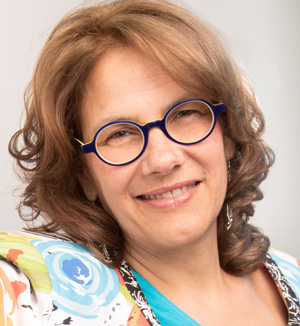¬È∂π¥´√Ω bioethics professor Dr. Fran√ßoise Baylis does not fear being ‚Äútoo political.‚Äù
Rather, the Canada Research Chair in Bioethics and Philosophy believes knowledge producers have an obligation to inform political discourse‚Äîsomething ¬È∂π¥´√Ω Medical School has made a priority through its #DalMedForward strategic plan.
 As a bioethicist, Dr. Baylis’ work is tightly tied to difficult questions destined for debate on the legislative floor. Women’s health, research involving children and genetic technologies have been her career focus. She is currently involved in the debate over whether Canadians should be allowed to sell their eggs and sperm. It’s the kind of contentious, emotionally charged debate that academics may hesitate to enter outside their own circles.
As a bioethicist, Dr. Baylis’ work is tightly tied to difficult questions destined for debate on the legislative floor. Women’s health, research involving children and genetic technologies have been her career focus. She is currently involved in the debate over whether Canadians should be allowed to sell their eggs and sperm. It’s the kind of contentious, emotionally charged debate that academics may hesitate to enter outside their own circles.
Not so Dr. Baylis, who has waded into the debate in response to a proposed private member’s bill by Anthony Housefather, chair of the House of Commons justice committee. The MP for Mount Royal proposes to remove the prohibition on payments for eggs, sperm and surrogate mothers.
Dr. Baylis objects to the sale of sperm and eggs as ‚Äúcommodification of the human body‚Äù that brings with it the risk of exploitation and coercion and has made her views clear in public media. ¬Ý
“Canada ought not to allow the commercialization of the human body,” she told the CBC. “Ultimately, this is about a world view grounded in the belief that the world is a better place if we have some valuable things (e.g., body parts) kept out of the marketplace.”
New ways of connecting people with information
Beyond media, Dr. Baylis seeks to engage the public directly and has taken the unusual step of producing a video — — that frames the moral and ethical dilemmas posed by the commercialization of human reproductive potential.
She is debuting The Body Economy during her address to the on Thursday, May 31 in Regina. She will have an opportunity to inspire academics to exercise their responsibility to the body politic as part of the Congress’ Big Thinking lecture series.
“I want academics to see that they have a moral obligation to share their knowledge with the world and not just with their peers,” says Dr. Baylis. “I really want to talk about the importance of engaging the public in the work that’s happening in the academy and making it relevant.”
By including her new video in her address to Canada’s largest annual gathering of academics, she will be leading her colleagues by example and hopefully inspiring them to engage the public in priority ethical debates. Her main goal with the video, however, is to reach directly into the public sphere.
“This video is an experiment for me. We worked really hard to say ‘what message can we get across effectively in two minutes?’,” Dr. Baylis says. “I’m saying to my audience, ‘Look, I want you to participate. Why don’t you right now live tweet this video. Send it out to your community.’ You can read between the lines of the video and see where I’m coming from, but it’s also designed to show the options that are out there and ask people which of these options make sense for Canadians.”
Empowering the public
Dr. Baylis is also making ethical discussions more accessible through her blog, . There, she and colleagues break bioethics issues down in a way that people without degrees in the field can understand.
“Democracy ultimately depends on an educated public, so how do we meet our obligation to empower the public so that they can express their opinions?” asks Baylis. “I work in an area where very often I’m dealing with complicated science. If I want people to understand it, I have to make it accessible.”
This year, for the first time ever, all five of the Big Thinking lecture series speakers are women, something Dr. Baylis feels is long overdue.
“I think it’s very significant… there are a number of contexts in which I have found myself the only woman at the table in the boardroom, or the only woman in a program,” she says. “The fact of the matter is, by virtue of my lived experience, I have different perspectives. But it is very hard to get opportunities to express those perspectives when you’re the minority… It’s really important to disrupt assumptions about where knowledge rests, and that’s what I think is happening here.”
As much as Dr. Baylis wants academics and the general public to engage, she also wants politicians to make better use of a resource for which they’re already paying.
“Academics are public servants. Sometimes they don’t understand that, and sometimes government doesn’t understand that. My salary is paid for, ultimately, through the public purse,” says Dr. Baylis. “If I work for you, and you’re developing a policy on whether Nova Scotia should allow payment for plasma, a real debate that’s happening now, why don’t you call me? And call somebody who has another perspective too. Say ‘Tell us what you know. Tell us what the evidence says.’”

